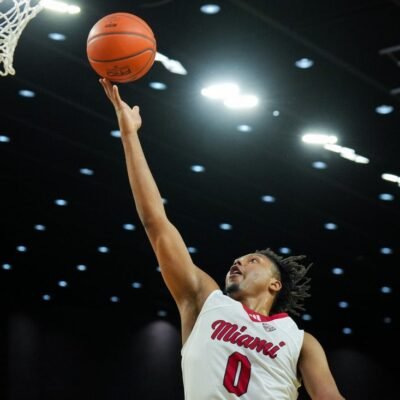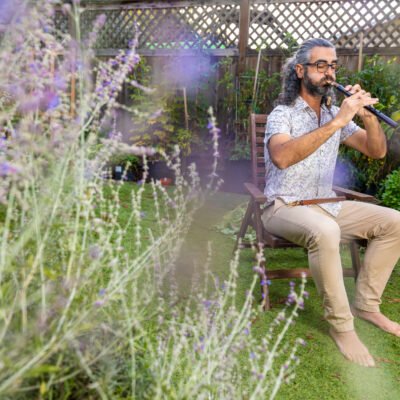At UC Berkeley, a sophomore told CalMatters that she was involved in campus activism for about a year and a half until about March, when she saw international students losing their visas and heard rumors of immigration enforcement agents on campus. Her thoughts on protesting have changed drastically. “Everything I say can be used against me,” she said. She has been coming up with creative ways to be involved while trying to keep herself and other international students safe. For example, she participates in student club meetings, where she feels she can speak more privately.
“I came to the United States because those are things that I wasn’t comfortable doing in my country,” the sophomore said. “I wasn’t comfortable speaking out. It was like a dictatorship, and that’s why I came to America, which is, like, where the freedom is supposed to be. And then I got met with this. It’s really, really disappointing.”
Also at UC Berkeley, a junior from the UK said that last year she felt much freer. During the campus pro-Palestinian protests last year, she wanted to participate but was too busy. Her regret has now turned into relief because if anyone had taken a picture of her near a protest, she believes she would have suffered consequences.
“Under a Biden administration, I would have felt like I was free to criticize the administration. I was free to take part in protests,” she said. “Because of Trump’s recent decision — especially with the students at Columbia — I feel like I can’t be anywhere near a protest.”

An international graduate student at another UC — he does not want to name his campus in fear of not passing his dissertation — is working on a research project about the interplay of international politics and media. His research paper includes a section on human rights violations and genocide. Initially, he included coverage of the Israel-Hamas war. Faculty advised him to remove the parts about Israel from his final project, he said.
“It does not have that big an impact on the entire project … but personally I’m just disappointed that I could not talk about it in my final events,” the graduate student said. “I will be presenting this to a set of faculty from my department, and they will be grading that, determining whether I can graduate or not based on the paper. It impacts a little bit on my department, and regarding freedom of speech.”
Balancing the support of Jewish students and due process
In his executive order, Trump promises to protect the civil rights of Jewish citizens, who have faced harassment, physical threats and assault on college campuses.
UC Irvine Jewish student Shir — who requested not to use her full name because she fears discrimination – believes if a student on a visa is “celebrating terror explicitly,” their student status should be evaluated. However, she notes the importance of drawing the line at terror and hate and not overstepping legal boundaries.
“Skipping [due] process doesn’t protect [against] antisemitism, it only creates more hate in the system,” Shir said in an email. “We are all humans first and should be treated as such.”
While she supports students’ right to protest, Shir wrote “there have been students repeating and glorifying slogans and ideas used by Hamas, a terrorist organization. This is where action is needed. I and many other Jewish students have been confronted at these protests and on campus, told I am a terrorist, that my family in Israel deserves to die, and had protesters outright justify Hamas’ actions to me.”

Raquel Aldana, a law professor at UC Davis, said the language being used by the Trump administration about antisemitism is extremely broad and could be read to include anything that is anti-Israel.
“One of the areas they’re going to be watching is how these institutions of higher learning respond to allegations of antisemitism, which could end up targeting foreign students,” Aldana said.
The Trump administration’s antisemitism task force is investigating allegations of antisemitic incidents at at least 10 college campuses across the country, including UCLA, UC Berkeley and the University of Southern California.
Aldana said she didn’t understand what problems the investigations are meant to address — adding that it “feels like a political move and not a true concern.”
International students limited on travel options
Three UC campuses that responded to CalMatters said they’ve sent communications to international students to use caution if they plan to travel outside the country.





